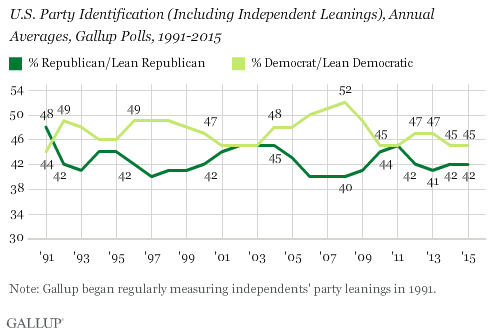The piece I did today at Fox and Hounds makes for a fun followup to
The Best Man:
The Republican National Convention is probably going to pick Donald Trump, Ted Cruz, or (much less likely) John Kasich. Since 1972, every major-party presidential nominee has come out of the primaries and caucuses, and GOP voters seem to have little appetite for breaking with that practice. Moreover, it is not even certain that the convention will adopt rules allowing for the nomination of another candidate. A dark-horse nominee seems impossible.
And yet, 2016 is the year for believing six impossible things before breakfast. Just 12 months ago, who would have thought that Trump would be the leading candidate – or that many “establishment” Republicans would see Cruz as the best alternative? So imagine that multiple ballots result in deadlock, and that convention procedures allow delegates to pick anybody they want. Who could emerge?
For years, conventional wisdom had it that Republicans liked to turn to the candidate next in line, that is, somebody who had previously sought the nomination but placed second. In 2008, that candidate was
Mike Huckabee. In 2012, it was
Rick Santorum. The trouble is that both Huckabee and Santorum both ran this year, and both flopped badly
It might be logical to consider the party’s congressional leaders. House Speaker Paul Ryan has a lot going for him: brains, a solid conservative reputation, and national exposure as the 2012 vice presidential nominee. But he has taken himself out of the running
with the strong declaration that he would not accept the nomination. As for Senate Majority Leader Mitch McConnell: if you look up the term “Washington Insider,” you may see his picture. Finding that he had a 16 percent national approval rating,
one pollster dubbed him “the most unpopular major political figure in the country.” Ted Cruz called him a liar, and is
standing by that characterization.
Some anti-Trump conservatives are floating the name of
retired Marine Corps General James Mattis. Not only did he build an awesome military career, but he also earned a couple of nicknames that will appeal to various wings of the party. “Mad Dog” would be a huge draw for foreign policy hardliners, while moderates would like “
the Warrior Monk,” a soubriquet referring to his contemplative and analytical side. He has shown the physical courage that Trump only pretends to have, and his knowledge of key national security issues would put all the current candidates to shame.
Though Mattis is attractive in many ways, the experience of the most recent general-turned-dark-horse is not encouraging. In 2004, General Wesley Clark entered the Democratic race with an outstanding résumé, but his candidacy quickly fizzled when he displayed total ineptitude on the political battlefield. Though warfare has much to teach us about politics –
I wrote a whole book on the topic – running for office requires skills that military officers do not automatically acquire. Dwight Eisenhower succeeded brilliantly in both realms; but alas, the Good Lord made only one of him.
Republicans might want someone with political experience, the ability to unify the party, and the potential to broaden its reach. Two South Carolinians fit this description. Governor Nikki Haley is a fiscal and social conservative who won acclaim last year for her response to the Charleston massacre, and her support for removing the Confederate battle flag from the state capitol grounds. As 44-year-old Indian American woman, she would undercut the stereotype of the GOP as the party of elderly white guys.
So would 50-year old Senator Tim Scott, the first black Republican senator from the South since Reconstruction. He has strong ties to Christian conservatives and the tea party faction, but he has also won solid reviews from unexpected quarters. Shortly before he moved from the House to the Senate, Eliza Gray wrote in the liberal magazine
The New Republic: “For as long as he’s been in politics, Scott has had a knack for navigating the complex internal politics of the GOP. Armed with an ever-present smile, Scott has been able to be all things to all people. He is an insurgent Tea Partier beloved by the House leadership who keeps his constituents happy with the occasional pork project. In a Republican Party that is constantly at war with itself, Senator Scott will offer much more to the GOP than the color of his skin.”
Obscure figures who suddenly land on a national ticket can quickly get into trouble, as Dan Quayle and Sarah Palin learned. Accordingly, the choice of Mattis, Haley, Scott, or any other outside candidate would be an enormous gamble for the GOP.
But would it really be a bigger gamble than nominating a
bombastic billionaire with a 67 percent unfavorable rating?















